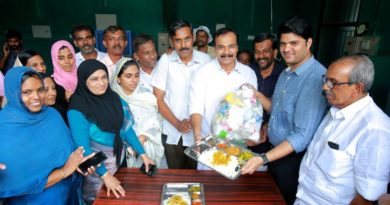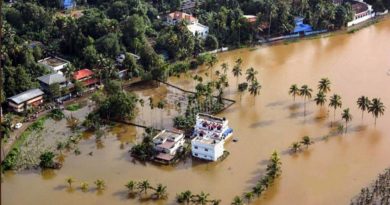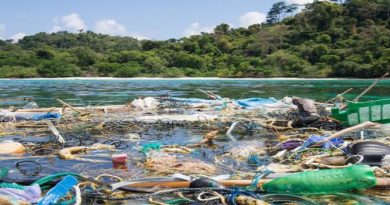India censors three environmental advocacy groups for criticising draft EIA rules
The draft EIA Notification 2020, activists say, is a major setback for environmental justice as it weakens public consultation and dilutes compliance norms for corporates.
The Indian government is censoring three environmental advocacy groups that are raising concerns about the draft Environment Impact Assessment Notification 2020. Fridays For Future India, Let India Breathe and There Is No Earth B have had their websites blocked.
In a statement on July 13, Let India Breathe, a volunteer environmental movement stated that their domain was “rendered inaccessible” by the National Internet Exchange of India, or Nixi.
Fridays for Future India, the country chapter of the global climate movement led by the Swedish activist Greta Thunberg, said they began a feedback process after the draft notification was opened for public consultation and were blocked not long after. Their website has been “inaccessible” since July 10.
There is No Earth B is an “open community of environmentally passionate people intent upon saving our only home”. In their statement, the group said their website was “rendered inaccessible” on the networks of some internet service providers in compliance with the telecom department’s orders.
“While we still haven’t been informed of the reasons behind our website getting blocked despite having no objectionable content whatsoever, we have found that we are not alone in facing this issue…Fridays For Future India and Let India Breathe have been subjected to a similar unjustified curtailment of the democratic as well as the fundamental right to freedom of expression,” it added. “Of key importance is the fact that all three of us have been running campaigns through our respective websites against the dilution of the EIA Notification by way of the new draft EIA Notification, 2020. In this time of a global health emergency when movement and gatherings are a huge health risk, digital and online activism are our biggest tools for fighting environmental injustices and speaking up against such unacceptable proposals.”
According to the group, if the draft EIA notification is implemented, it “will prove to be a major setback for environmental justice in our country”.
The draft notification, which the government is pushing amid a pandemic, is fiercely opposed by environmental activists. They object that it gives the government vast discretionary powers in deciding the environmental impact of projects while limiting the engagement of the public.
“While projects concerning national defense and security are naturally considered strategic, the government gets to decide on the ‘strategic’ tag for other projects. The 2020 draft says no information on ‘such projects shall be placed in the public domain’. This opens a window for summary clearance for any project deemed strategic without having to explain why,” the Indian Express explained. “Additionally, the new draft exempts a long list of projects from public consultation. For example, linear projects such as roads and pipelines in border areas will not require any public hearing. The ‘border area’ is defined as ‘area falling within 100 kilometers aerial distance from the Line of Actual Control with bordering countries of India’. That would cover much of the Northeast, the repository of the country’s richest biodiversity.”
On Thursday, the Karnataka High Court warned the environment ministry that the draft EIA notification would have stayed if steps were not taken to publicise it widely, the News Minute reported. The ministry’s counsel told the court they have received around four lakh objections to the draft notification so far.
Speaking about how they were alerted to the censorship, Let India Breathe’s campaign specialist Radhika Jhaveri said, “We were alerted about our website being inaccessible on June 29. At which point we reached out to our developers. After conducting various technical tests, we realised that the issue was not from our end and this is when we reached out to our domain provider. On July 3, they informed us that our domain had been placed on hold by the registry Nixi, which is a government authority.”
Asked what they found contentious in the draft EIA notification, Jhaveri said, “The draft allows projects that started construction without first acquiring an environmental clearance to get one retrospectively. This inverts the logic of the precautionary principle which forms the bedrock of environmental jurisprudence in India. Over the years, the EIA has been amended over 50 times and most of the amendments have diluted its provisions. Not to mention the fact that the EIA has been used as a tool by successive governments to hand over control of natural resources to corporations.”
At There is No Earth B, when the volunteers tried opening their website, they were confronted with this message: “You are not authorised to access this web page as per the DoT compliance.” They reached out to the Internet Freedom Foundation, a digital rights and liberties advocacy group.
The volunteer movement is demanding the withdrawal of the notification through which “public consultation processes are being weakened and compliance requirements on the part of industrialists are being diluted”. “Could this ever be legislation meant to protect the environment?” they ask.
Speaking about this latest instance of internet censorship in the country, Apar Gupta, executive director of the Internet Freedom Foundation, told Newslaundry, “In the case of Let India Breathe, the website has not been blocked, the domain has been seized by the National Internet Exchange of India. As per the information provided by GoDaddy, there is a domain hold placed by Nixi. However, the reason why this domain hold has been placed hasn’t been shared.”
Gupta explained how websites come to be blocked in India: “The process takes place under the Information Technology Act which gives power to the central government to block websites. As per the blocking rules, blocking can be done by complaints made by various executive branches of government or it can happen due to a court order.”
In mid-July, the Internet Freedom Foundation filed RTI applications seeking information on the censorship of the three websites from the ministries of environment and IT, the telecom department, and the Cyber Crime Cell of the Delhi police.
“Our earnest hope is this is an error and it is soon reversed because all the three websites were taking forward public participation in an important process in which views were invited from the ministry itself,” Gupta said.
The Legal Aid Clinic at the Jindal Global Law School, meanwhile, has sent a representation to the law minister asking for the websites of the three environmental advocacy groups to be restored immediately.
Newslaundry reached out to the Nixi office as well as three of its senior executives for comment, but to no avail. This story will be updated if a response is received.
Courtesy: newslaundry.com




